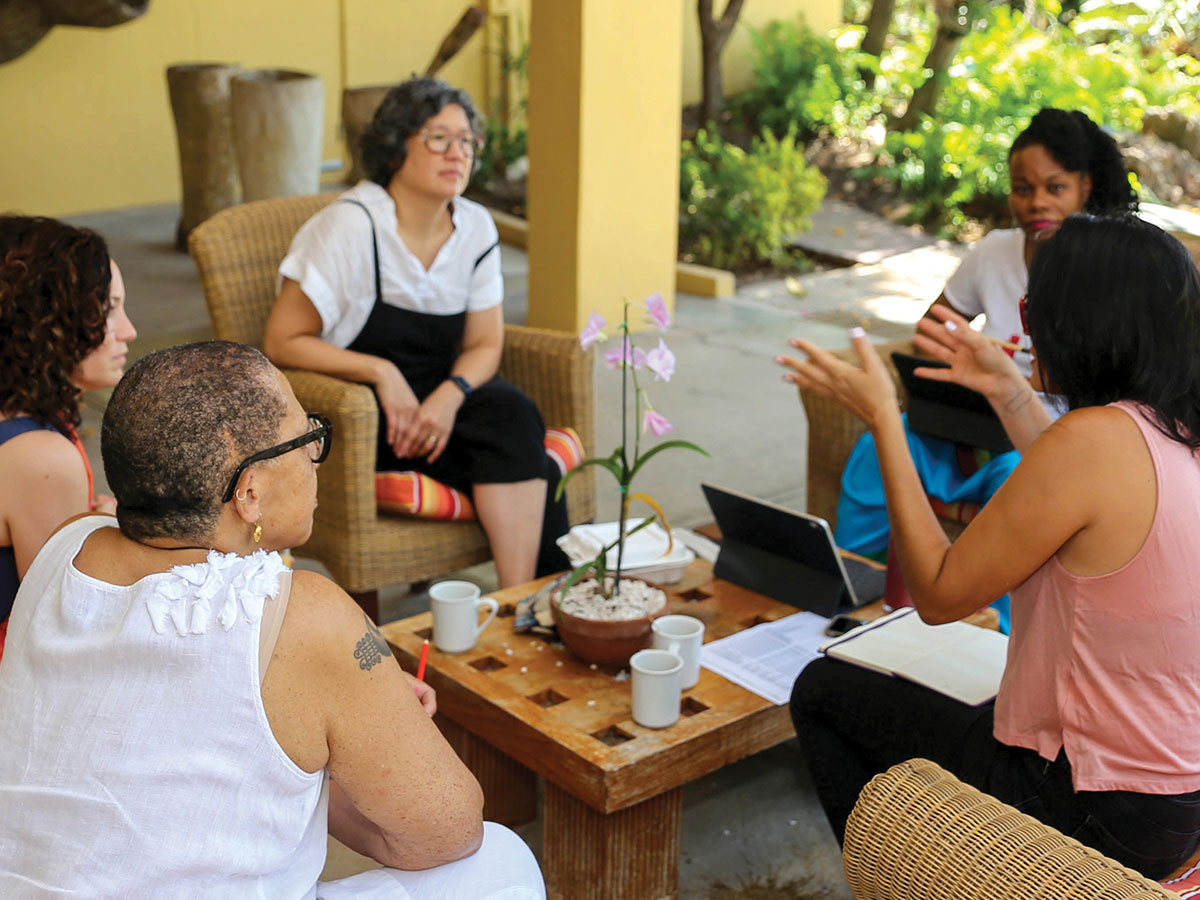
Over in our CONNECT online community, PEAK Grantmaking members generously share their approaches to grantmaking, providing a forum for continuous learning among colleagues. In recent CONNECT threads, members weighed in on how to be nimble in modifying grants that have already been awarded. With their permission, we’re sharing some of those insights here.
Convert to general operating support
Of particular note, funders are reporting converting active restricted grants to general operating support – a primary grantmaking strategy that PEAK enthusiastically supports – which gives grantees the power to determine how the funds will be applied based on their specific needs and when – as in the case of unforeseen circumstances.
In fact, grants officer Vanessa Fumia shared that, due to COVID-19, the California-based Heising-Simons Foundation is “providing additional funding that can be used for general operating support even when the original grant is project support.”
The inability to predict how and how long the pandemic will continue to have an impact led the Zellerbach Family Foundation to focus on general operating support grants for an extended period. “Given how much uncertainty there is,” reports Patrick Taylor, grants manager at the foundation, “restricting the arts grants seems pointless until things return to some semblance of normality.”
Learn more in our How-To Guide | How to Structure Grant Awards to be More Responsive.
It’s always time to revisit reporting
Another opportunity to accommodate grantees is to alter the reporting requirements for the grant. Reporting is a hot topic on CONNECT, as many funders are seeking ways to both reduce burden and yield actionable results. You’ll find PEAK’s recommendations on this topic – from purpose to process – in our How-To Guide | How to Revisit Reporting, but here let’s examine some ways that funders are exhibiting agility in this part of the grantmaking lifecycle.
One of the more widespread possibilities for changes in reporting is a deadline extension: Six months is a common period for this. Additionally, if your foundation requires a report before the project end or more frequently than annually, these interim reports may be eliminated. Have you considered alternative reporting formats?
PEAK encourages foundation staff to offer reporting options that are less time-intensive and more collaborative than a written document. Depending on the scope of the grant, conversations by phone or email may be good substitutes for reports created specifically to share grant results, especially in crisis situations.
Time is a valuable asset
Some CONNECT contributors have reported using no-cost extensions when things don’t go exactly as planned. Both Deena Lauver Scotti from Missouri Foundation for Health and Matthew Henkes from Iowa West Foundation shared that the deadline for their grantees to request an extension is 60 days before the grant’s end date—even before the pandemic hit. Iowa West offers additional flexibility across the board for their grantees.
Pallavi Bharadwaj, Geoscientists Without Borders® program manager at the Society of Exploration Geophysicists (SEG), reports similar terms and adds that no-cost extensions are approved “on a case-by-case basis for up to one year” and rarely “a project might need more than one [no-cost extension] because of situations out of [the grantee’s] control.” She lists civil unrest, staffing changes, and the challenges of working in field-based projects as examples of situations that would warrant an extension, and also shared that her organization will take the first step of offering the extension, in addition to the current COVID-19 pandemic this year.
Christine Lee from The Robert Wood Johnson Foundation shared her organization’s concise list of information requested from grantees that seek an extension with PEAK members.
An extension related to any of these scenarios may be requested by a grantee for various reasons, and might also be offered proactively by the funder when challenging situations – a natural disaster, for example – arise for multiple grantees.
Create a policy for this type of amendment to address the application deadline, the number of extensions permitted, and the circumstances for which an extension is permitted. The original grant agreement should include extension terms and details of the process by which an extension may be requested. The record in your grants management system should note the reasons for the extension so that it may be reported correctly.
Be a flexible funder
As situations change, so do financial needs. The agreed-upon grant amount may no longer cover the project if the scope has been altered – a trigger for a modification itself – or when a grantee must pivot quickly to address a crisis.
When a grantee requests a change to the budget, what policies do you have in place to respond? The Robert Wood Johnson Foundation clearly outlines, based on the funding amount, when a budget modification is required and when it’s not. In some cases, funders base the modification requirement on percent change in the budget rather than a dollar amount.
Another tactic to provide relief to grantees is to accelerate the payment schedule. Funding designated for a grant’s second year, for example, may be brought forward to cover unanticipated events in the first year.
However your foundation permits changes to funding, eligibility guidelines, thresholds, and protocols for approval should be documented and shared with grantees.
Keep track of modifications
Of course, attention must be paid to the protocols for tracking grant modifications. Noting changes in the grant record by updating coding, support type, and the reason for modification – whether it’s through foundation outreach or by grantee request – is critical.
Each grants management system will have different ways to note changes in the record, and some will be better than others. In addition, getting the necessary approvals and communicating with the grantee about updated grant terms are common steps in the process. If you’re creating new protocols, perhaps as part of your efforts to address an unprecedented situation, be sure to document them in your foundation’s manual to improve your foundation’s future readiness.
Join the conversation
Participate in the CONNECT online community – open to all PEAK members – to share your advice and offer solutions for challenges that so many funders are facing.
Not a member? Explore the benefits of joining PEAK’s powerful network of grants management professionals as a contributing Organization Member, or through a complimentary Individual Membership.



